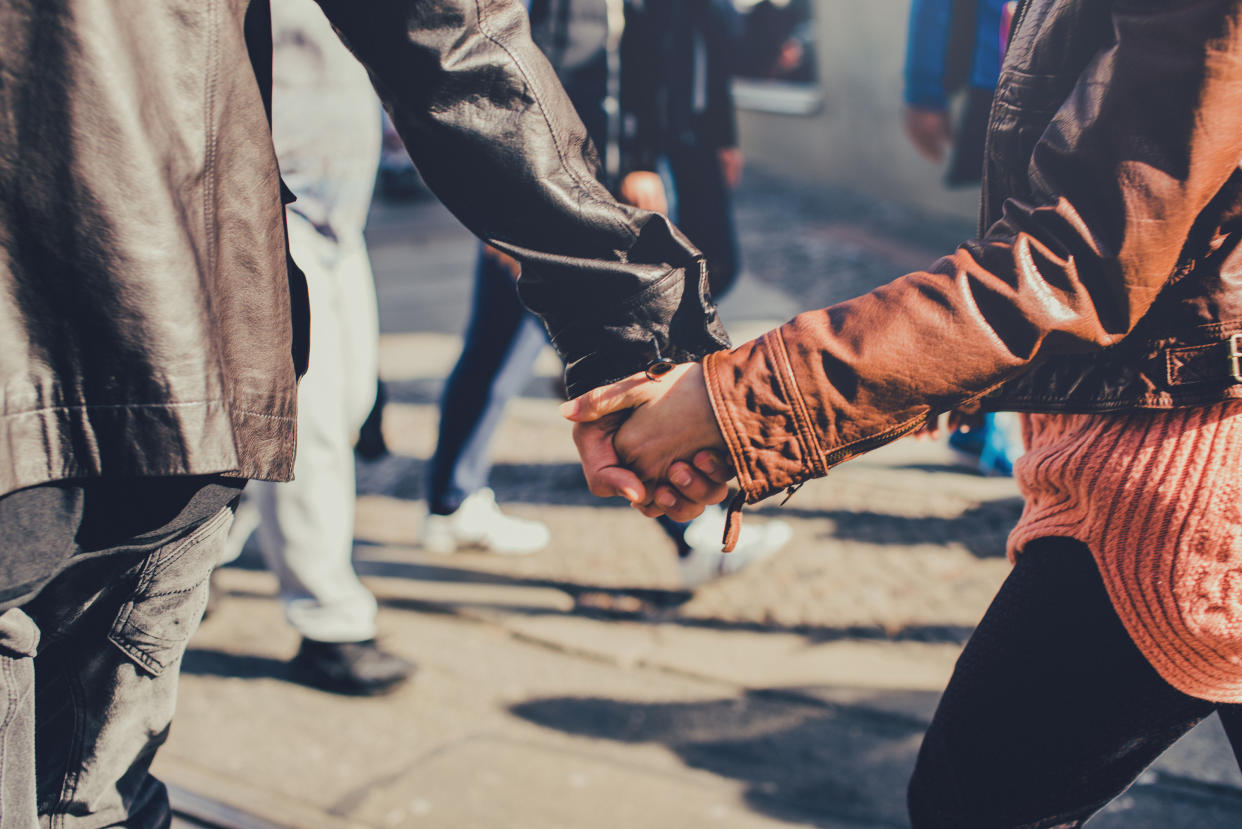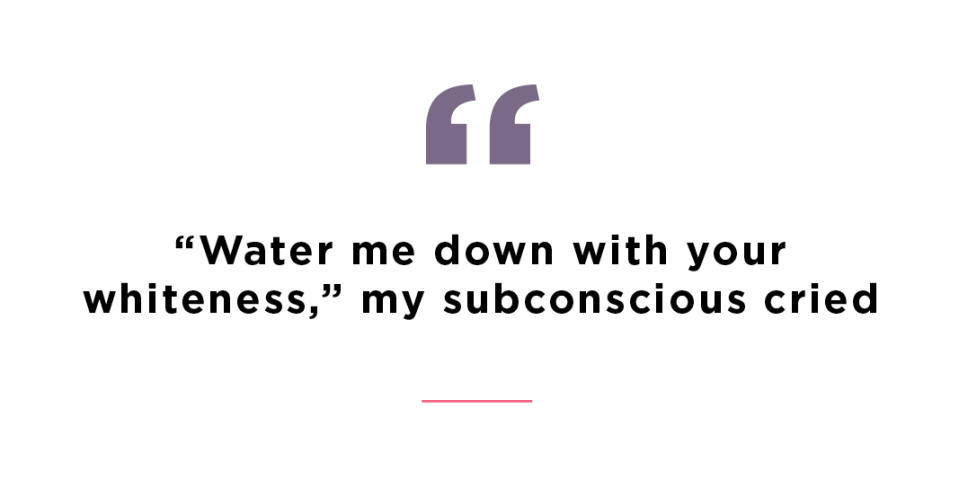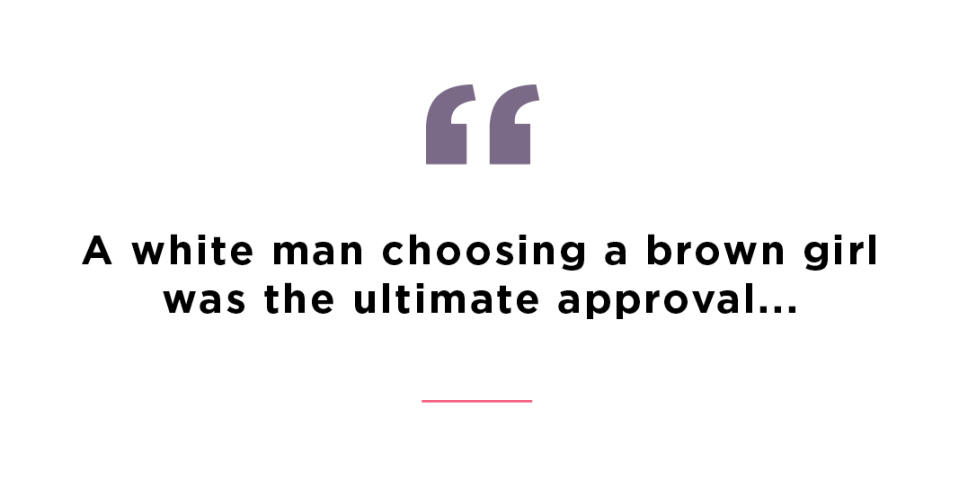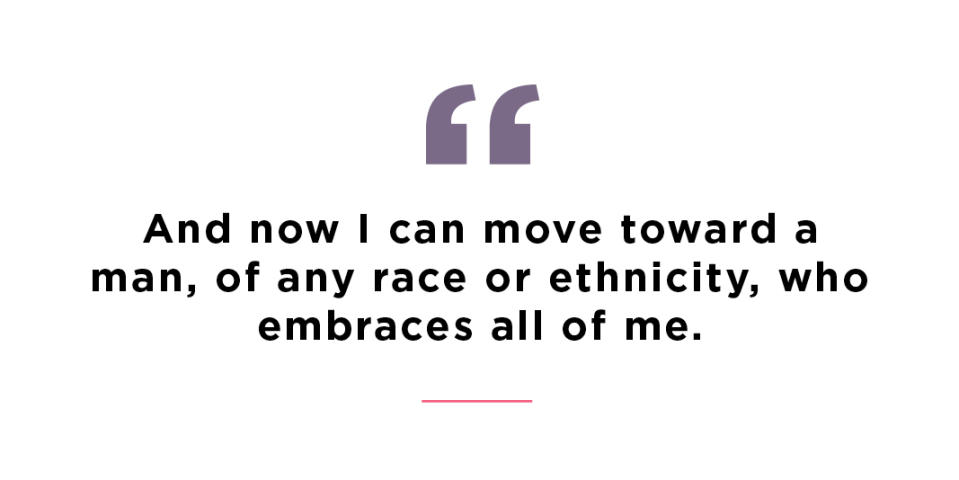Why I never took a Latin lover

Over the weekend, I entered the word “how” into my browser, and the top searches auto-populated as below:
How to be a Latin lover
How to make slime
How to tie a tie
(Not going to admit what I was actually searching!)
Clearly, the Latin lover is highly desirable. As one myself, I can attest to that. So why have I never given it a try? Let’s get simple facts out of the way first. I was raised in a predominately white town — the only Latinos I saw were my family members. So sheer numbers (i.e., lack of opportunity) played an important role. The reason for not dating them after leaving said town at 18 years old is a stickier subject.
The psychology behind my subconscious strategy began early, as all our most limiting narratives do. I remember playing on the playground in kindergarten with Michael Allen, my very first crush. Michael was adorable — blue-eyed and towheaded. I was head-over-baby-heels! He seemed to return my feelings until one day he asked me, “Are you black?” and ran away. I had no idea what this meant at the time, except that I was clearly different, and it seemed the difference (according to him) was a negative one. Call me crazy, but that kind of stuck! And the trauma was reinforced as it repeated throughout grammar, middle, and high school in various circumstances and intensified degrees.
Chief among them was my relationship with my very first boyfriend, Brett. I was 17 years old — my parents were splitting up; my sister, the closest person in my life, had gone away to college; and I was being bullied at school in a big way. I was feeling isolated and scared when I found myself in detention (for being persistently tardy), and there he was. Brett had expressed interest in me for many years, but I never returned the feelings. Until now.
Simultaneously, demographics were changing in town. At this time, the area experienced a surge of Latino immigrants looking for work in the affluent town. They found it readily at the strip mall, various local restaurants, and in childcare and landscaping. As immigration became more prevalent, so did the resistance to it. Our new residents were different in a particular way — they were brown, which was the easiest thing to identify and, in turn, attach prejudices to.
In school, the term “dirty Mexican” became a very common insult, and the link to me was made immediately. Not only did I look like these immigrants, but I spoke the language and lived on the very edge of town, Selma Boulevard, a street known to offer more affordable housing. I was suddenly viewed as different from the same kids I’d grown up alongside since pre-K. It felt as if they had suddenly discovered a dirty little secret about me. ‘Now they understood.’ And while I would go after any peer who made a disparaging or racist remark, I submissively swallowed my boyfriend’s and his family’s racism daily.

The racism was subtle at first, but progressed as it became clear my relationship with Brett could be more than just a high school crush. I can recall Brett’s dad, Robert, bragging to us one day that he had picked up a local “Mexican” in town and given him a pitiful amount of money to manicure their incredibly extensive property. He stared curiously for my reaction. My father was a tree surgeon, a fact Robert knew, and often took jobs on the weekends, such as the one he was describing to us. I felt rage — at Robert, at myself — but I was frozen. I felt like a mouse in a cage. I knew I should run, but something made me feel as if I should “prove” my worth to this depraved family. Something about their degrading treatment felt familiar to me, and so I stayed. But the family’s objection to the relationship never ceased, and I was eventually forbidden to visit the house.
Brett did not break up with me though. Our hormonal codependency was enough to sustain the persistent attacks from his family and even our peers. The reaction to our coupling in school was that I was a “gold digger.” I’m at a loss for a response there, even after 15 years.
Meanwhile, Brett was unfazed. He seemed to congratulate himself on his exotic tastes in the same way he did his horribly ostentatious cars. (He drove a white Hummer and a black Corvette that you could hear coming from the moon, approximately 1.2 miles to school every day.) I wasn’t sure what to make of this, but I felt safer having him on my side. It touched me that he stood up to his parents, and I felt insulated from the bullies at school even though he was the biggest bully of all. To me Brett, his family, and my peers confirmed the complejo (the Spanish word for complex) that began that day in kindergarten with Michael Allen. And while we all have those coming-of-age experiences where we feel we do not fit in, mine was attached to my ethnicity, the color of my skin, my unique features, and the people I love most — my family.
The experience was quite painful and birthed in me a cover-up — hiding aspects of my personality I felt could isolate me from my white peers — and a constant seeking of approval from white men (and white women really). Their stamp of approval was the hall pass I needed. “Water me down with your whiteness,” my subconscious cried. And I was willing to be eroticized for my “spiciness” (Brett literally called me “spicy” as a compliment) if it meant he could help me blend in.

I realized I wanted Brett’s “love” (i.e., his choosing to be in a relationship with me over the white girls) to prove I was attractive and desirable — that even if I was “different,” I was still “OK.” And as long as he didn’t run away (the way Michael Allen did), even if the relationship was torture, it meant I was lovable despite my brownness. A white man choosing a brown girl was the ultimate approval, and therefore my subconscious goal into adulthood. Even after moving away from small towns and small minds, I could feel the trigger activated most especially in my love life.
As anyone could predict, my “issues” manifested as follows: I’ve clocked a solid 18 years in long-term relationships. Four boyfriends — all white men and two from my hometown. (Yup, I’m a glutton for punishment!) I recently became aware of my pattern when my most recent crush stopped me dead in my tracks.
I first met him, let’s call him Bill, in a job interview where he barely looked at or spoke to me. In spite of that, Bill soon became my boss. He was “blue-eyed and towheaded.” Sound familiar? We became fast friends and developed a trustworthy business relationship. I believed him to be a “great guy,” which he is. I’d invent reasons to speak to Bill in order to suss out why he was clearly going to be my future husband. Conveniently the most terrifying political election in history was going down, but he had no interest in discussing. He lived blocks from the Trump building and yet was somehow completely oblivious to the historic Women’s March. In fact, he told me that while he understood his position of privilege as a white man, people’s “passionate views” on today’s tumultuous climate made him highly uncomfortable, and he preferred not to engage.
Meanwhile, I was visibly crying at the office the day Trump was elected and proudly shouting “LOVE TRUMPS HATE” whilst wielding a Planned Parenthood sign at the march. I was turned off by his entitled apathy, but with my historic trigger activated, I had to make my fantasy about Bill a reality in order to feel “OK.”
It was the first time I became aware of what I was doing. Bill was simply being himself and a savvy businessman, which is not wrong. But I was deciding I “liked” him based not on what was actually being presented but on what I subconsciously needed, which was to have this white man “approve” of me by agreeing with my politics. If he agreed, then I would obvs marry him. Duh.
The truth is: Sure, he was handsome, driven, and polite, but it was clear our core values did not resonate. I dreaded my crush on that day and was proud of myself for making major progress.

Today I’m dating. I’m aware of my subconscious patterning, and I can see when I move toward old habits. When I do, I try to remind myself that was then and this is now. I was a little girl trying to fit in, and I didn’t know any better. But I’ve always been a ferociously proud Latina. I honor my heritage and my parents’ heroic stories of overcoming great odds to achieve the American dream. I love my unique features — being bilingual — and I want to continue those traditions with my own family one day.
Does this mean I must finally find my Latin lover? I don’t know. But I’m more open than ever. I never felt my pattern caused me to turn away from Latin men. It just kept me on a hamster wheel using one archetype as a tool for self-harm cementing an insecurity from my childhood. And now I can move toward a man, of any race or ethnicity, who embraces all of me.
Read more from Yahoo Lifestyle:
Why you should never give up your friendships in favor of a relationship
The one question to ask yourself when deciding if you’re ready to commit
Follow us on Instagram, Facebook, and Twitter for nonstop inspiration delivered fresh to your feed, every day.
